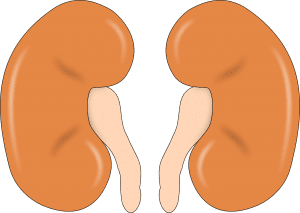IgA Nephropathy (IgAN)
What is IgA nephropathy (IgAN)?
IgA nephropathy (IgAN), also known as Berger’s Disease, is a chronic kidney disease that can progress to kidney failure. It occurs when there is a buildup of antibodies in the kidneys, which damages them. IgAN usually follows a viral infection in the upper respiratory or gastrointestinal tracts. It usually appears during teenage years, but patients may not show symptoms in its early stages. In the United States, it is twice as likely to appear in men than in women. It is estimated to affect about 130,000 people in the U.S. per year.What are the symptoms of IgAN?
In early stages, IgAN might not show any symptoms. It can be silent for years. Once symptoms do appear, the following are the most common:- Blood in urine
- High blood pressure
- Pain in loin area
- Pain in sides of the back, below the ribs
- Swelling in hands and feet
- Drowsiness
- Large amounts of protein in urine
- Kidney failure
What causes IgAN?
IgAN occurs when immunoglobin A (IgA) deposits build up in the kidneys. IgA is an antibody—a protein that protects the body from invaders like bacteria and viruses. When too much of it builds up, inflammation occurs, which then damages kidney tissues and hampers the kidneys’ ability to filter wastes from the blood. IgAN affects the kidneys by attacking the glomeruli, which are the parts of the kidneys that filter waste and remove extra fluid from blood. The buildup of IgA damages the glomeruli, causing the kidneys to leak blood and protein into the urine. The exact causes of IgAN are not fully understood. Some believe that it is an autoimmune disease, while others believe that there are genetic factors playing a role.How is IgAN diagnosed?
IgA nephropathy is diagnosed using the following procedures:- Kidney biopsy
- Urine test
- Blood test
- Iothalamate clearance test, which tracks how well the kidneys are filtering waste
- Recording of family history
What are the treatments for IgAN?
Most patients will receive care from a nephrologist, a doctor who specializes in kidney diseases. IgA nephropathy treatment includes, but is not limited to:- Medications to lower blood pressure
- Medications to help the kidneys remove extra fluid from the blood, called diuretics
- Medications to decrease inflammation
- Reducing cholesterol levels
- In the case of kidney failure, a transplant or dialysis is needed
Where can I find out more about IgA nephropathy?
IgA Nephropathy (IgA) Articles

Enrollment Completed in Clinical Trials for Primary Sjögren’s Syndrome and IgA Nephropathy
Rose Duesterwald
June 13, 2024
Read More »

Rare Community Profiles: Strong Like a Mother: How Judy Has Remained Steadfast Through Her IgAN Journey
Jessica Lynn
September 21, 2023
Read More »


UK The Voice Star Adam Isaac Receives Kidney Transplant from Friend Following IgAN Diagnosis
Jessica Lynn
August 16, 2023
Read More »

There Is No Limit to What Some Mothers Will Do For Their Children.
Rose Duesterwald
May 26, 2023
Read More »






